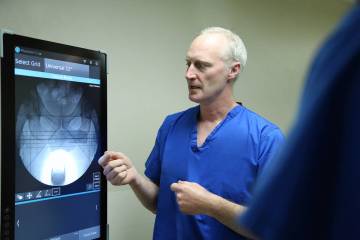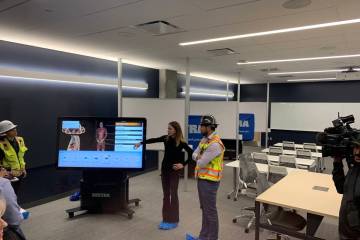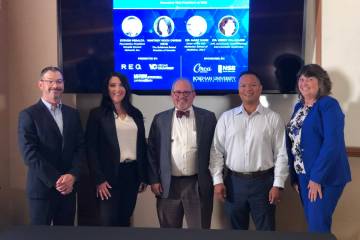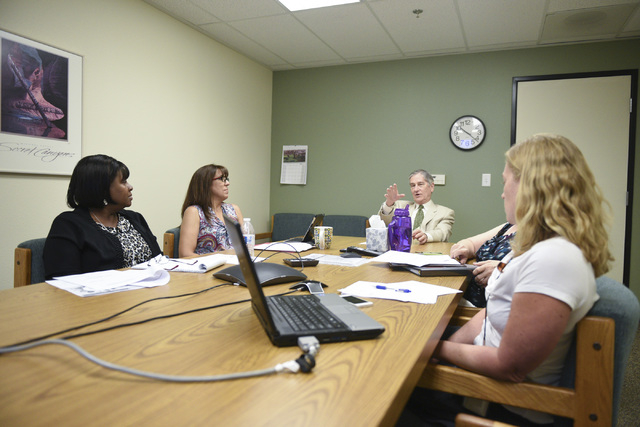
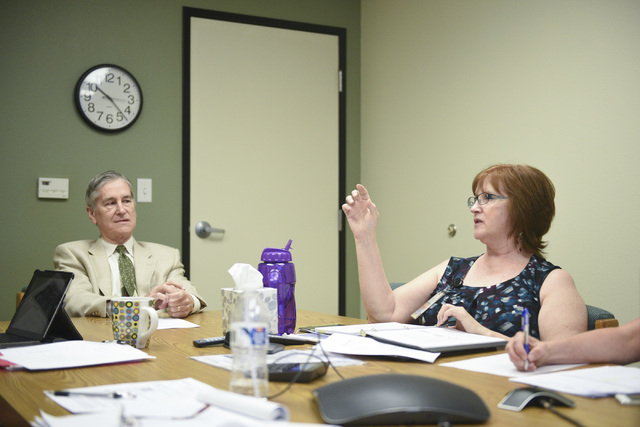
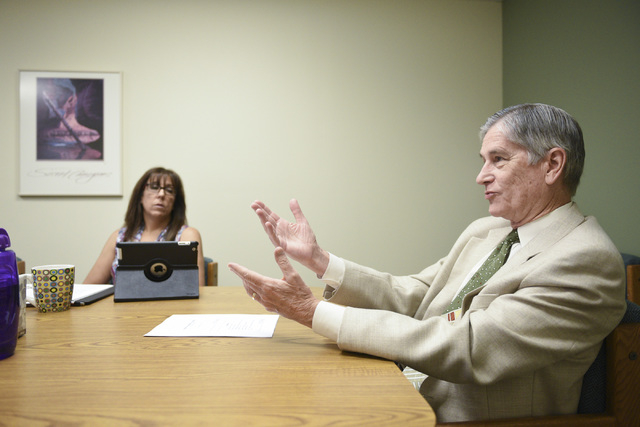
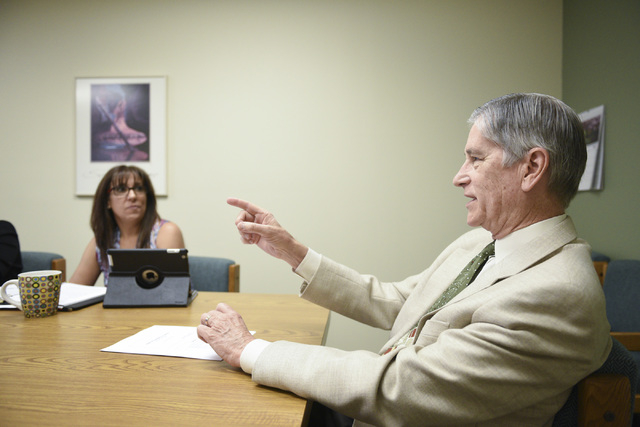
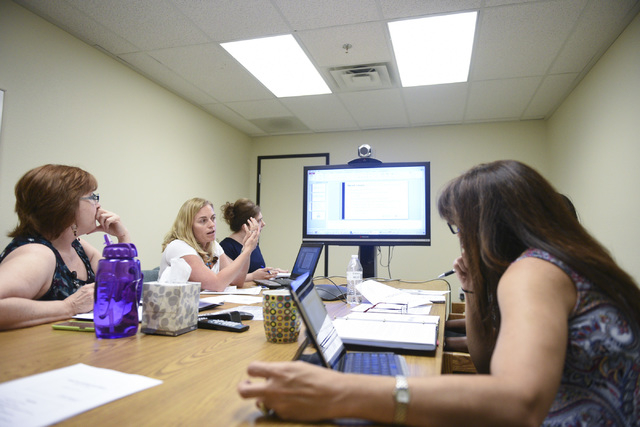
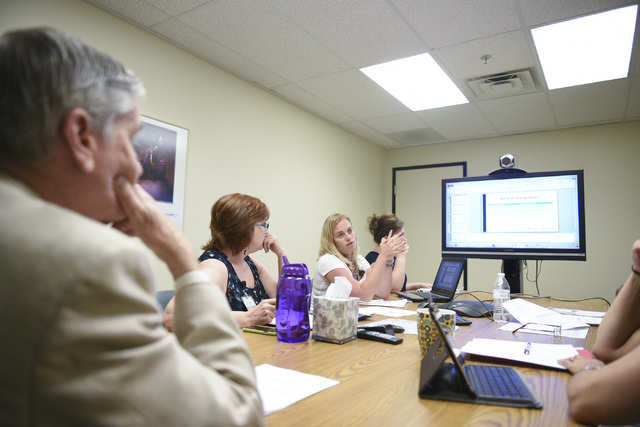
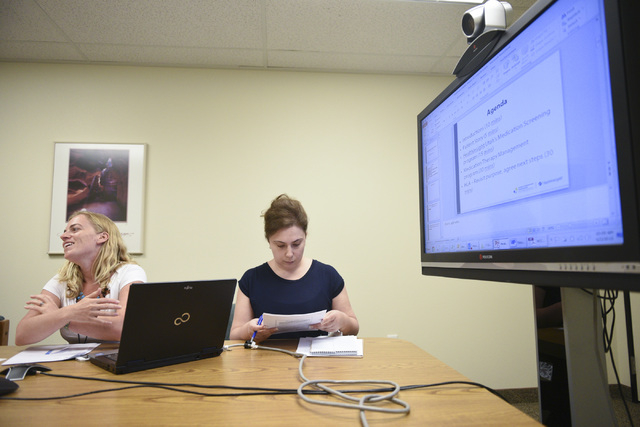
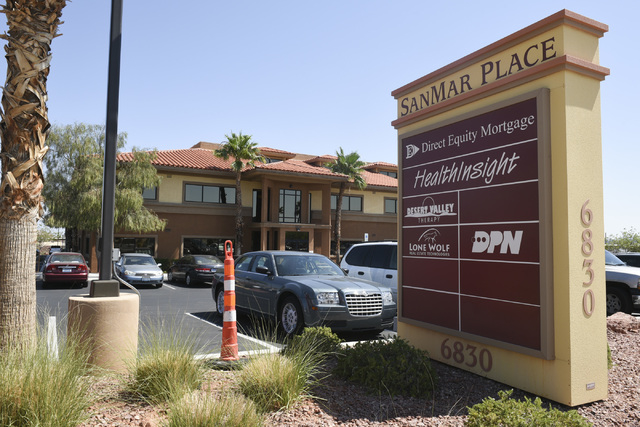
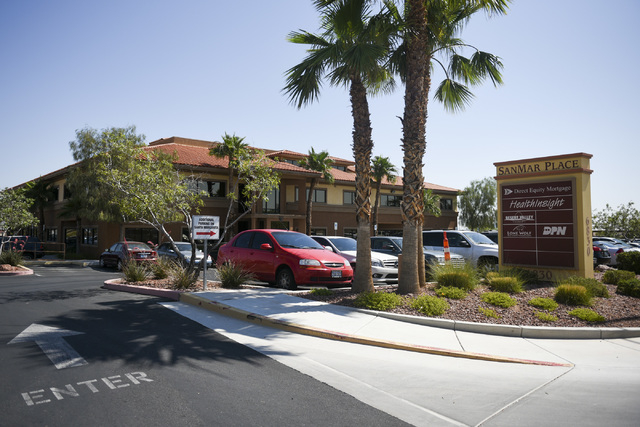
From improving access to medical records to reducing hospital readmissions to ensuring that seniors get flu shots to implementing a new payment system for doctors, a Nevada nonprofit organization has a lot on its plate in behind-the-scenes work in the valley’s medical community.
HealthInsight Nevada is going to be busy for the next five years after its contract was renewed by the federal government, which is working to reduce hospital readmissions. The Center for Medicare &Medicaid Services has awarded other contracts that will expand its role in improving the quality of health care for Nevadans.
Over the past two decades, HealthInsight has served as the Medicare and Medicaid quality improvement organization by working with hospitals, physicians, nursing homes and home health agencies to improve the safety and quality of care in those settings.
HealthInsight provides the health information exchange, which on a statewide basis transfers clinical health information among health providers. It’s a work in progress, and forthcoming federal funds will make it more expansive.
Hospitals, labs and imaging facilities are among those connected to the system, but the plan is to connect all doctor offices, home health agencies, nursing homes, pharmacies and other parts of the medical industry. HealthInsight is mapping the field to get the various systems to communicate with each other to decipher the information, said Jerry Reeves, HealthInsight vice president of medical affairs.
“When Mrs. Jones goes between different parts of care and she shows up as a new patient at some site, that doctor sees what’s going on with Mrs. Jones,” Reeves said. “He knows what her diagnosis is and what the medicine and treatment have been rather than starting from a blank sheet of paper on a clipboard and having Mrs. Jones … recall all of this for the umpteenth time.
“Not only is that irritating for her, but it results in misinformation or missing information and leads to delays that are neither in the doctor’s nor the patient’s best interest,” he said.
HealthInsight works with hospitals and community services agencies to help patients. When patients are discharged from a hospital, they may require help with transportation, getting medicine, obtaining a wheelchair or getting around safely in their home, Reeves said.
“What HealthInsight is doing is working with a full staff of partners that may need to be engaged to improve the health outcomes of folks who have recently been hospitalized and are being sent home or to another facility via rehabilitation or to a nursing home,” Reeves said. “We want to make sure everything is tucked in at the next level the patient goes.”
HealthInsight will focus on reducing diabetes, heart disease and other potential deadly or debilitating illnesses and ensure that doctors target those conditions in examinations, even though patients may go to the doctor for unrelated issues.
“It’s very important to also address what will kill them early,” Reeves said. “They may not be thinking about that. It’s the same thing as taking care of your car. If you maintain it, you can drive it longer. If you don’t maintain it, it’s not going to last as long.”
The work will ensure that seniors have a higher rate of vaccines for pneumonia, flu and shingles. Getting the flu is life-threatening for some seniors and can be addressed by an annual shot. Bacterial pneumonia is life-threatening, but two shots after age 60 will address the problem, he said.
“The patient only goes to doctor when they have pain and symptoms, and the doctor can get overwhelmed in what the patient wants to be addressed,” Reeves said. “They are hurting, coughing and (have a) fever, and that’s what the patient is focused on. Meanwhile, they’re not getting some of the other things that are very important to their quality of life. Their life can be shortened by an influenza infection.”
A pending grant focuses on screening and intervention for alcohol use and depression among seniors, Reeves said.
The focus will be working with doctor’s offices, home health agencies and nursing facilities so when patients go for service, a screening questionnaire is done to see whether they’re depressed or using alcohol, Reeves said.
“If you went to a psychologist’s office, they probably would (perform this check), but if you went to an internal medicine office, they might not,” Reeves said. “It turns out that depression dramatically affects how likely it is a patient will actually fill their medications that are recommended. Depression has a significant effect on health outcomes. That is very important in conditions like diabetes, high blood pressure, heart disease and cancer, for that matter.”
Many patients in Southern Nevada don’t have a regular doctor, and that leaves much uncovered if the person’s only visit is if he goes to the emergency room for a fractured ankle, Reeves said.
“We have to have things where the patient and doctor have an ongoing relationship and track record of what’s gone on before and it is systematically followed through to make sure it gets done (rather) than assume someone has done it,” Reeves said. “You have to check. We are trying to (build a) support system that make it less likely that someone will fall through the cracks.”
HealthInsight is also waiting on a contract involving 10 states in which it will help doctors’ offices handle a new federal payment system. Medicare and Medicaid are going from a fee-for-service to one based on the best outcomes, Reeves said.
“Part of the reason health care is twice as expensive as in the next nearest country for cost of care is that when you pay for activity, you get a lot of activity and not necessarily outcomes,” Reeves said. “They are shifting to paying for outcomes (rather) than paying for activity. That’s a huge culture change for American health care providers. Culture change is slow, tough and hard. It’s not easy work.”
Doctors will have to prove what they’ve accomplished before a payment is made, Reeves said. HealthInsight will go to doctor groups to help them with work flow and show how they’re improving a patient’s diabetes, blood pressure, cholesterol and heart disease, he said.
Robert Pretzlaff, chief medical officer with Dignity Health-St. Rose Dominican, credits HealthInsight for playing an important role in the valley because it focuses on broader health care with an aim to improve it. It serves as a bridge and a forum among hospitals, nursing homes and health care professionals, he said.
“It’s important to have groups like that because they aren’t bound to any one health care system, and so things are learned in one system,” Pretzlaff said. “We can share information and insights. At one level we may be competitors, but at another level we’re trying to provide the best care for people in the valley.”
Pretzlaff said one example of his group’s efforts is to reduce the overuse of antibiotics, which are decreasing resistance to bacteria.
“They are able to look at the practice patterns as a community, and something has to be done on a community basis,” Pretzlaff said. “As a single hospital, we don’t have that ability to affect what’s going on.”
Mason VanHouweling, University Medical Center CEO, said HealthInsight plays an important role in focusing on measures to improve health care in the valley. It has helped raise the bar for improving the outcome of patients, he said.
“They have brought hospitals together to share that information,” VanHouweling said. “Everybody in town wants to raise the quality, so it’s good to have a partner to help understand the data, how to interpret it and how to bring best practices to improving it and share ideas collectively so we can all improve the outcomes for the patient.”
VanHouweling said work on a health record exchange has been a great program that helps physicians pull data from other hospitals and doctors. It makes for faster diagnoses and reduces repetitive tests, especially with imaging, where it’s important to reduce radiation exposure.
“We have just started pulling that information to treat patients where they have gone through their primary care office or an integrated health network,” VanHouweling said. “We treat them more efficiently and in a more rapid time because we don’t have to duplicate a test they have had previously.”


